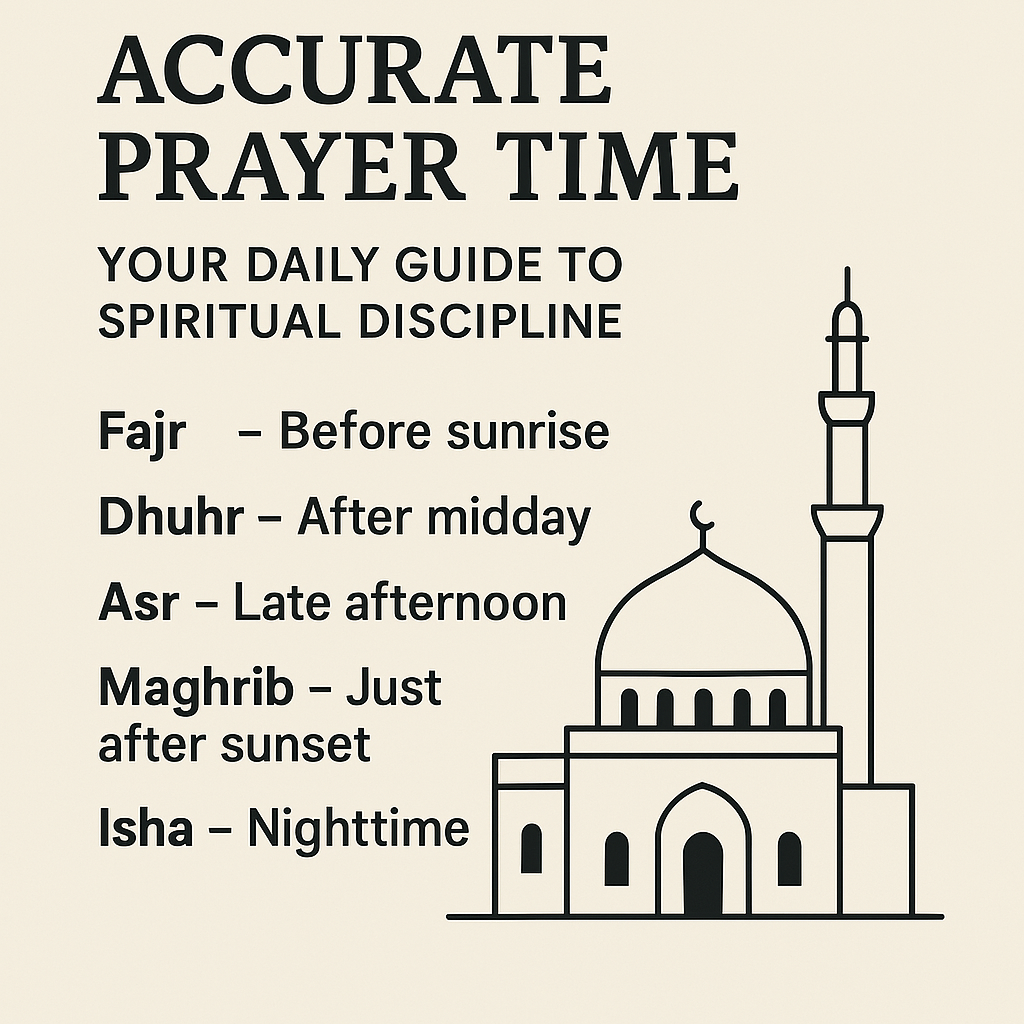Introduction
In the life of a practicing Muslim prayer time (Salah timing) holds immense significance. Offering prayer at the prescribed times is one of the core pillars of Islam guiding believers to pause and reconnect with their Creator throughout the day. In today’s fast-moving digital world staying updated with accurate prayer times is easier than ever and more important than ever.
What is Prayer Time?
Prayer time refers to the designated periods during the day and night when Muslims are required to perform Salah. These times are determined by the position of the sun and change slightly every day based on geographic location.
The five daily Islamic prayers and their general timing are:
- Fajr – Before sunrise
- Dhuhr – After midday
- Asr – Late afternoon
- Maghrib – Just after sunset
- Isha – Nighttime
Each prayer must be performed within its specific time window to be considered valid.
Why Following Prayer Time Matters
Observing prayers at their correct times nurtures discipline, mindfulness and spiritual awareness. It structures the day around moments of peace and reflection grounding a person in their faith and reminding them of their life’s purpose.
Delaying or missing prayers without a valid reason is discouraged in Islam. That’s why keeping track of daily prayer times is a priority for practicing Muslims.
How Are Prayer Times Calculated?
Prayer times are calculated using astronomical data. The sun’s position in the sky determines the beginning and end of each prayer time. Factors influencing the calculation include:
- Latitude and longitude of your location
- Time of year and season
- Calculation methods (e.g. Umm al-Qura ISNA MWL)
With these factors in mind modern tools can offer precise timings for each day.
Tools to Check Prayer Time
Thanks to technology there are now several convenient ways to track prayer times:
- Mobile apps like Muslim Pro Athan and IslamicFinder
- Smartwatches and digital Azan clocks
- Mosque announcements and call to prayer (Adhan)
- Website widgets that display prayer time by location
These tools help Muslims observe their daily prayers without uncertainty or delay.
Global Variation in Prayer Time
Because prayer times depend on the sun’s position they vary from city to city even within the same country. For example, prayer time in London differs significantly from prayer time in Jakarta or prayer time in Mecca. That’s why it is essential to refer to localized prayer schedules.
Staying Consistent in Modern Life
Balancing modern responsibilities with prayer can be challenging but not impossible. Many workplaces and public spaces now offer prayer rooms especially in Muslim-majority countries. Setting gentle reminders and aligning your daily schedule around prayer times can help maintain consistency and devotion.
Conclusion
Observing each prayer time with intention and punctuality is not just a religious requirement it is a spiritual habit that brings peace structure and purpose to daily life. Whether you are at home work or traveling, staying informed about the correct prayer times helps keep your faith and routine in harmony.
